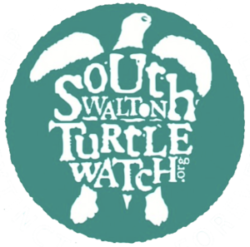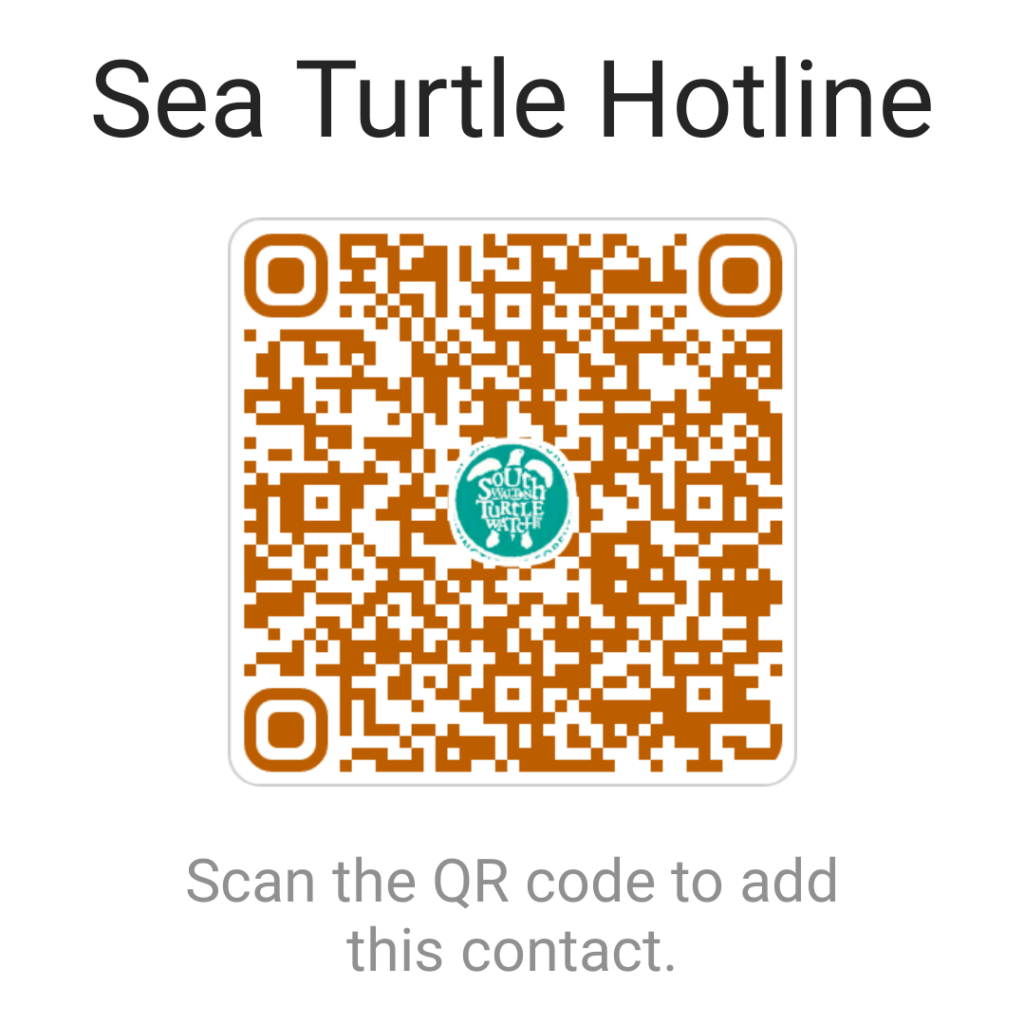The FWC recommends residents and visitors in Florida’s coastal communities follow these guidelines to help conserve sea turtles and their hatchlings:
Hands Off Hatchlings! Even well-meaning attempts to rescue sea turtle hatchlings can do more harm than good. Sea turtle hatchlings are digging out of their nests and clambering toward the Gulf anytime from July to October, and sometimes even longer. Just remember, “Hands off!” is the best policy for beachgoers encountering sea turtle hatchings. Digging into a sea turtle nest, entering a posted area or picking up a sea turtle hatchling to take a photo are against the law.
Turn Out the Lights, Save a Life. Turn off or adjust lighting along the beach in order to prevent nesting females or hatchlings from getting confused and going toward lights on land, instead of the salt water where they belong. Use turtle-friendly lighting outside homes and other buildings along the beach. Replace incandescent, fluorescent and high-intensity bulbs with FWC-certified low-wattage, long wavelength options available in red or amber colors. Turn out outdoor lights at night when not needed. With beach lighting, remember to:
Keep It Long – Long wavelength lights are better for turtles. Look for the red and amber lights that have been certified as turtle-friendly by the FWC.
Keep It Low – When illuminating walkways use low-wattage bulbs and install lights close to the ground.
Keep It Shielded – Focus lights down, not up or outward, to avoid confusing nesting turtles and hatchlings.
Shut Curtains and Blinds – Close curtains and draw blinds at night on beachfront windows and doors.
Clear the Way at the End of the Day. Nesting mothers and hatchling sea turtles can get trapped, confused or impeded by gear left on the beach at night. Remove items such as boats, beach chairs, umbrellas, buckets and tents at the end of the day, and fill in holes or level piles of sand before nightfall. Also, avoid burying umbrella poles in the sand; use pole-holders or sleeves instead. Properly dispose of any trash, food or other litter in covered trash cans to avoid attracting predators to the nests.
Choose Turtle-Friendly Activities. Remember less beach driving means more sea turtles surviving! While driving carts, cars or trucks are allowed on some beaches, vehicles can crush sea turtle nests, killing hatchlings and nesting turtles. Lighting bonfires on the beach is also hazardous to sea turtles. In addition to the danger of a fire on the sand, the bright light can confuse hatchlings making their way to the ocean. Also remember it is illegal to disturb or harm sea turtles and their nests, eggs and hatchlings.
The FWC works to conserve Florida sea turtles, including coordinating nesting beach survey programs around the state. Report sick, injured, entangled or dead sea turtles to the FWC’s Wildlife Alert Hotline: 1-888-404-3922, #FWC or *FWC on a cell phone or text [email protected]. Visit MyFWC.com/SeaTurtle, and click on “Sea Turtles and Lights” or “Wildlife Friendly Lighting” for more information on keeping beaches dark and safe for sea turtles.
Bookmark and Share

